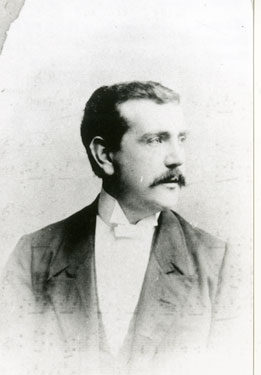Annotation:Woodland Flowers (1): Difference between revisions
No edit summary |
No edit summary |
||
| Line 10: | Line 10: | ||
<div style="text-align: justify; direction: ltr; margin-bottom: 90px; margin-left: 70px; margin-right: 120px;"> | <div style="text-align: justify; direction: ltr; margin-bottom: 90px; margin-left: 70px; margin-right: 120px;"> | ||
<br> | <br> | ||
'''WOODLAND FLOWERS [1]'''. AKA and see “[[Mrs. Kenny's Barn Dance]],” “[[Shit Cart Polka (The)]].” Scottish, English, Irish; Schottische, Hornpipe or Barn Dance. England, East Anglia. D Major. Standard tuning (fiddle). ABB'. The tune is almost universally known amongst older traditional fiddle and squeezebox players in England and was in the repertoire of such musicians as melodeon player Bob Cann (Dartmor, Devon) and Billy Bennington (Norfolk, who called it “[[Prickly Pear]]”). Despite its being sometimes transcribed in 6/8 jig-time, the melody was composed as a schottische by Felix Burns [https://boxandfiddlearchive.weebly.com/felix-burns.html] (1864-1920). Burns was born in Perth, Scotland, in 1864. A musical prodigy and multi-instrumentalist, his first musical instruments were tin whistle and mouth organ, “graduating” to piano, organ and various brass instruments. His composing career started at an early age and he went on to become one of the most popular composers of his time, although for an unknown reason he often credited his compositions to various pen names such as Leona Lacoste, Alfred Rosslyn, Claud Roslind, and Leon Fabrini. He settled in Carlisle, and died 1920, although not before siring thirteen children and composing 120 pieces, of which "Woodland Flowers" is said to have been his personal favorite. Burns’ work was much recorded in the early decades of the 20th century by such musicians as Scotland’s Wyper Brothers. Later, Scottish band leader Jimmy Shand recorded “Woodland Flowers.” | '''WOODLAND FLOWERS [1]'''. AKA and see “[[Mrs. Kenny's Barn Dance]],” “[[Shit Cart Polka (The)]].” Scottish, English, Irish; Schottische, Hornpipe or Barn Dance. England, East Anglia. D Major. Standard tuning (fiddle). ABB'. The tune is almost universally known amongst older traditional fiddle and squeezebox players in England and was in the repertoire of such musicians as melodeon player Bob Cann (Dartmor, Devon) and Billy Bennington (Norfolk, who called it “[[Prickly Pear]]”). [[File:felixburns.jpg|440px|thumb|right|Felix Burns]] Despite its being sometimes transcribed in 6/8 jig-time, the melody was composed as a schottische by Felix Burns [https://boxandfiddlearchive.weebly.com/felix-burns.html] (1864-1920). Burns was born in Perth, Scotland, in 1864. A musical prodigy and multi-instrumentalist, his first musical instruments were tin whistle and mouth organ, “graduating” to piano, organ and various brass instruments. His composing career started at an early age and he went on to become one of the most popular composers of his time, although for an unknown reason he often credited his compositions to various pen names such as Leona Lacoste, Alfred Rosslyn, Claud Roslind, and Leon Fabrini. He settled in Carlisle, and died 1920, although not before siring thirteen children and composing 120 pieces, of which "Woodland Flowers" is said to have been his personal favorite. Burns’ work was much recorded in the early decades of the 20th century by such musicians as Scotland’s Wyper Brothers. Later, Scottish band leader Jimmy Shand recorded “Woodland Flowers.” | ||
<br> | <br> | ||
<br> | <br> | ||
Revision as of 03:26, 15 August 2018
X:1 T:Woodland Flowers (Schottische or Barn Dance) [1] T:Mrs. Kenny's Barndance M:4/4 L:1/8 Q:175 Z:Paul de Grae C:Felix Burns P:aabbaccaabba B:The Music-Lovers' Library, No. 31; George Newnes Ltd., London N:piano accompaniment omitted here K:C (3EF^F|:G>ed>c G>ed>c|(3A^GA d>f a4|g>^f=f>B e>cA>B|(3ced (3cBA G2 (3EF^F| G>ed>c G>ed>c|(3A^GA d>f a4|g>^f=f>B e>cA>B|1c2 e2 c2 (3EF^F:|2c2 e2 c2 z2|: K:G (3bag d2 (3bag d2|(3c'ba e2 (3c'ba e2|f>d^c2>d e>fb>a|(3gba (3gfe d2 z2| (3bag d2 (3bag d2|(3c'ba e2 (3c'ba e2|f>d^c2>d e>fb>a|1g2 b2 g2 z2:|2g2 b2 g2 (3E=F^F|| K:C G>ed>c G>ed>c|(3A^GA d>f a4|g>^f=f>B e>cA>B|(3ced (3cBA G2 (3EF^F| G>ed>c G>ed>c|(3A^GA d>f a4|g>^f=f>B e>cA>B|c2 e2 c2 z2|| P:"Trio" K:F A2 A>c B>AB>=B|c2 f2 z2 f>e|d>^cd>e g>fe>d|c4-c>ca>c| B2 g2-g>Bg>B|A2 f2-f>Af>e|d>^cd>e f>ef>^f|g2 c2 =B2 _B2| A2 Ac B>AB>=B|c2 f2 z2 f>e|d>^cd>e f>ef>g|a>A^c>e a>ab>a| ^c2 d2-d>da>g|=B2 c2-c>cg>f|e2 b2 a2 g2|1f2 c2 =B2 _B2:|2f6||

In Ireland, a version of "Woodland Flowers" is played as a barn dance under the title “Mrs. Kenny's Barn Dance.” Paul de Grae finds a version as an untitled barndance (although, oddly, noted in 6/8 time) in Feldman & O’Doherty’s The Northern Fiddler (1976, p. 110), collected from Donegal fiddler Simon Doherty.

